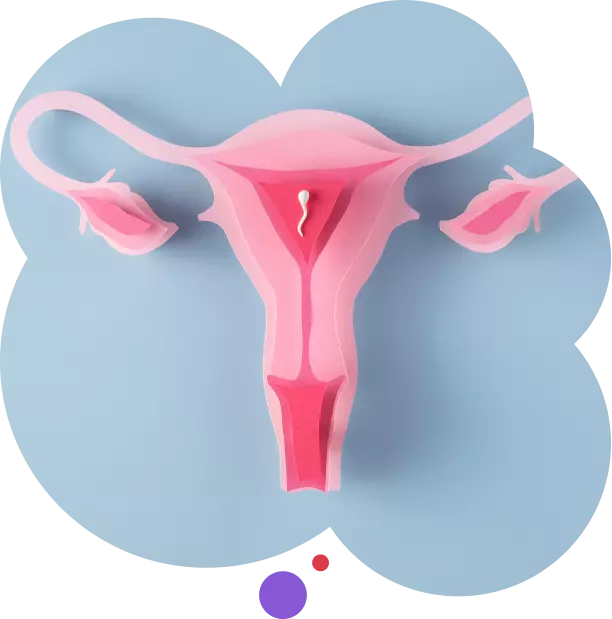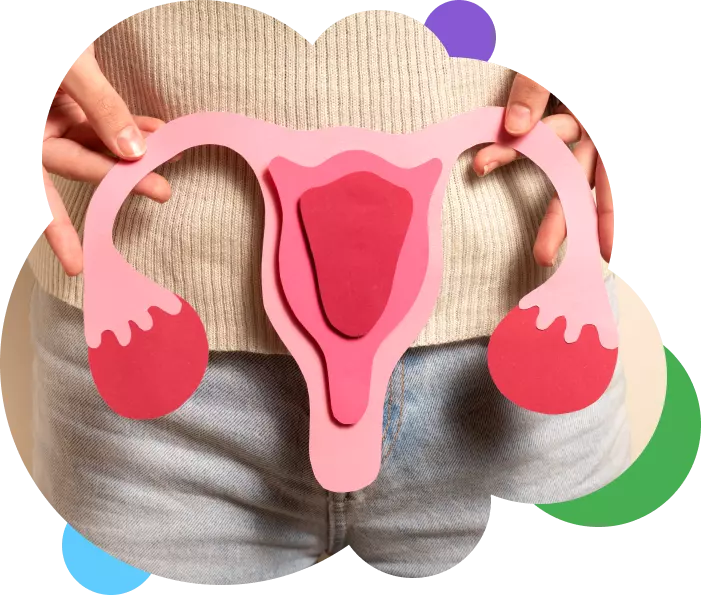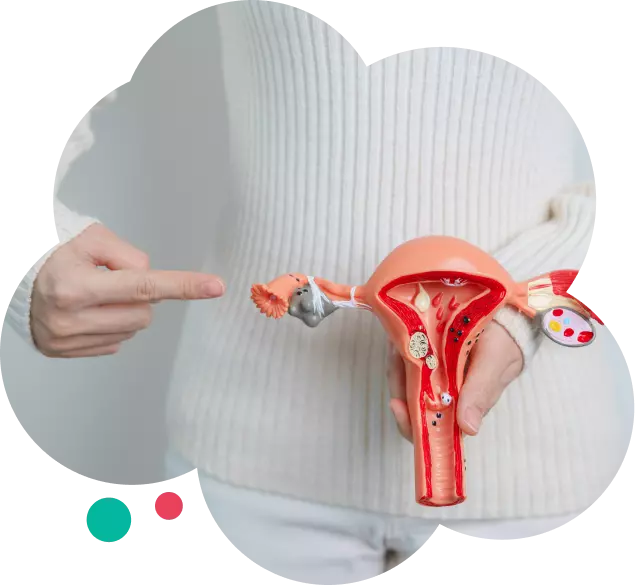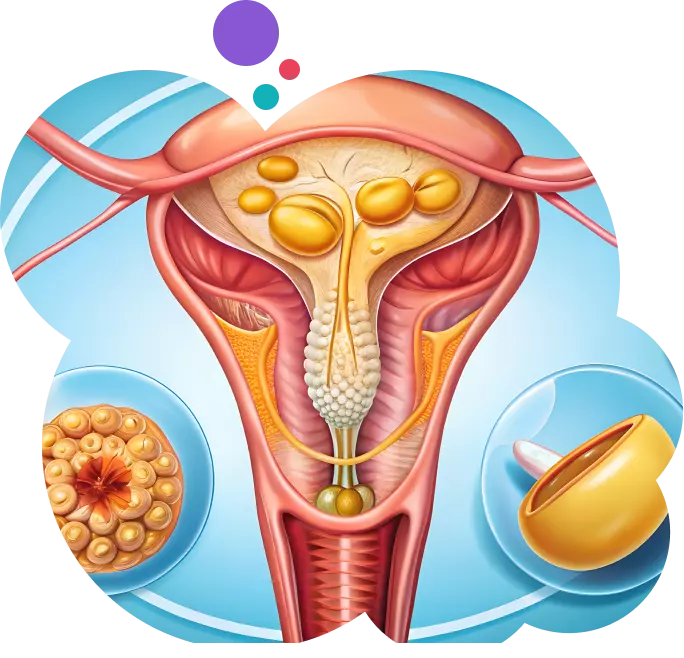
Uterine fibroids are non-cancerous growths that can form in the uterus and impair women’s reproductive health. At Feto IVF, we understand the effects of fibroids on fertility and general health. Our dedicated team provides extensive examinations and individualized treatment choices to help you manage symptoms and achieve your reproductive objectives.

Uterine fibroids are non-cancerous growths that develop in or around the uterus, also known as the womb. These fibroids, also called leiomyomas or myomas, are made up of muscle and fibrous tissue and can vary in size from being almost undetectable to large masses that can distort and enlarge the uterus. Although fibroids are common, many women are unaware they have them as they do not always cause symptoms.
The specific cause of fibroids is unknown, however genetics and hormonal variables may contribute to their growth. Treatment methods vary according to individual needs and may include monitoring, medicines, or surgical treatments. Understanding uterine fibroids is essential for women’s reproductive health, and speaking with a healthcare specialist may assist decide the best strategy to treatment and care.
Fibroids can develop in different parts of the uterus, and the type often determines the symptoms. The main types include:


The exact cause of uterine fibroids isn’t known, but research suggests a few contributing factors:
Other growth factors: Substances that help the body maintain tissues, such as insulin-like growth factor, may affect fibroid development.
While many women with fibroids may not experience any symptoms, others may have symptoms that affect their quality of life. Common symptoms include:
Addressing these issues with appropriate assistance and therapy can assist people in navigating their reproductive journeys.


If you experience symptoms suggestive of uterine fibroids, your doctor may recommend:
Yes, fibroids can cause problems with conception or pregnancy, depending on their size and position in the uterus. Treatment may increase fertility results.
Medication, minimally invasive treatments, and surgery are all alternatives for treatment, depending on the severity of the symptoms and the patient’s reproductive objectives.
Fibroids may diminish after menopause owing to reduced hormone levels, but they do not usually disappear entirely without therapy.
No, uterine fibroids are benign (non-cancerous) growths that only rarely turn malignant.